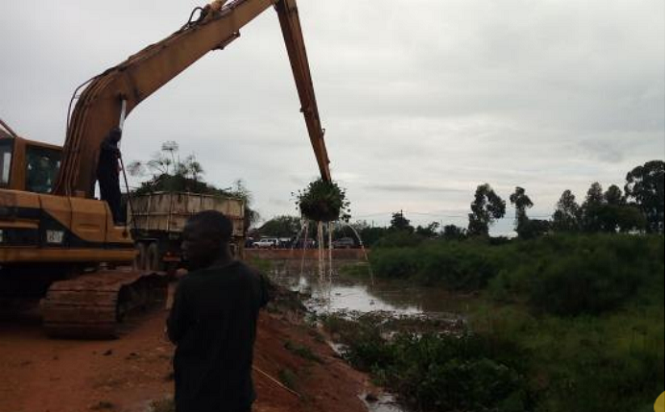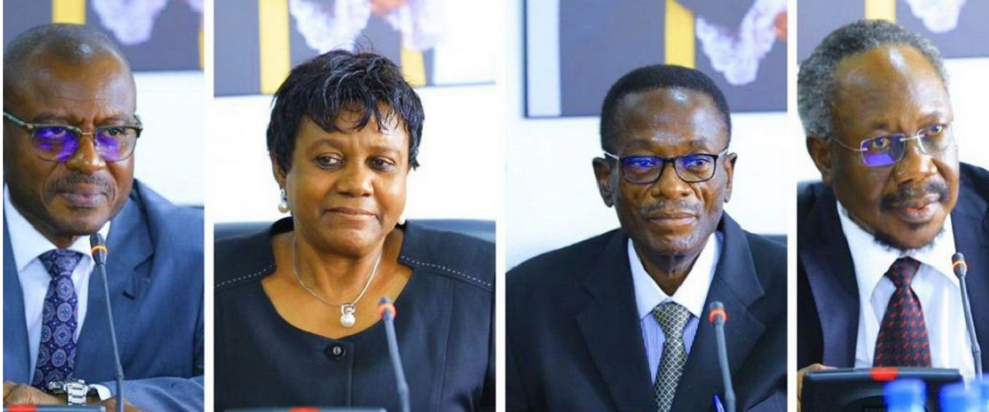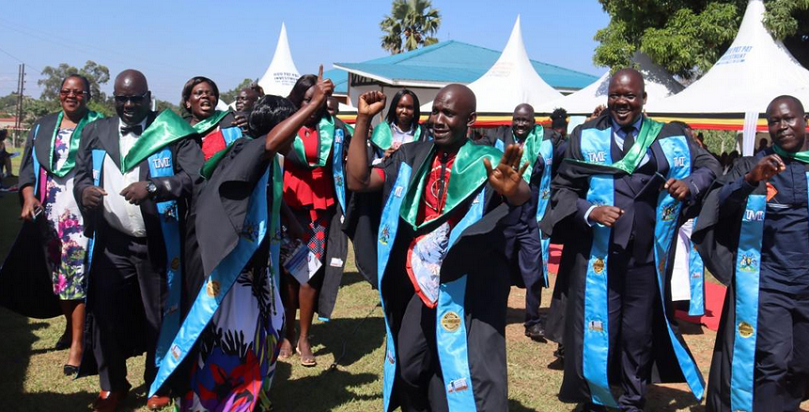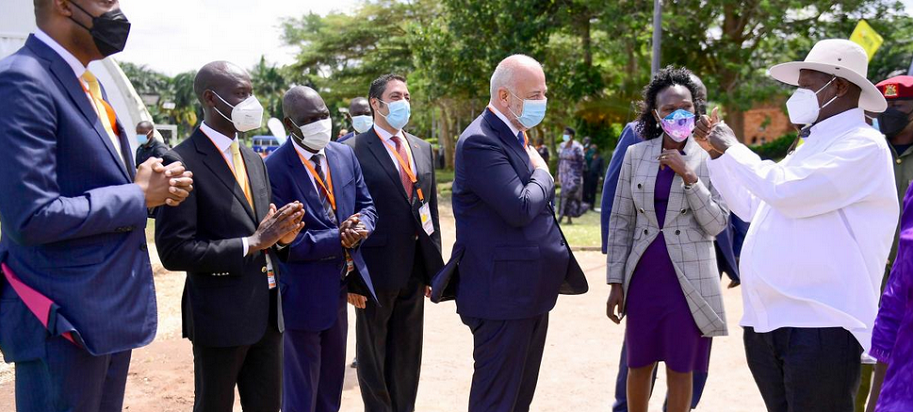An excavator removing water weeds at Kamuwunga Landing Site in Kalungu. Ministry of Agriculture want the local fishermen join the efforts to clear lakes of these aquatic weeds
Irresponsible fishing practices are partly responsible for the rapid accumulation of unwanted weed in Uganda’s water bodies. The Agriculture, Animal Industry, and Fisheries Ministry is concerned about the expeditious growth and accumulation of aquatic weeds that are progressively eating up bigger portions of lakes and rivers resulting in water pollution and affecting fish breeding.
Joyce Ikwaput Nyeko, the Director of Fisheries Resources in the Ministry of Agriculture and Fisheries indicates that the levels of pollution resulting from the several types of aquatic weeds growing on the different water bodies is worrying to the country.
The most common aquatic weeds according to Ikwaput include the highly invasive Kariba weeds and Water hyacinth, the think algae and floating papyrus plants that have mostly affected Lake Kyoga and Albert, and several landing sites on Lake Victoria and its tributaries.
She explains that besides the available natural conditions, the accumulation of these aquatic weeds is partly blamed on irresponsible human activities that include the prevalent habits of depositing sandbags in the lake by fishermen, which provides potential breeding and holding grounds for the weed.
Ikwaput says that they estimate an area of 1,720 square kilometers of Lake Kyoga; almost 20% of the total lake size to be under siege by aquatic weeds, about half of the 542 landing sites on Lake Victoria to are also directly affected by the weeds and the problem is still relative on lake Albert.
In total, according to Ikwaput, at least 3,400 square kilometers of water bodies in Uganda are currently occupied by aquatic weeds, which presents serious threats to the natural resource.
She indicates that besides government sourcing for partners that can support efforts of clearing the weeds using mechanized methods, the Ministry of Agriculture has also embarked on a campaign to mobilize local fishing communities to take up the responsibility of manually removing the weeds for recycling.
Hellen Adoa, the State Minister for Fisheries says, in addition, to support from the Egyptian government that has for a while been helping Uganda in clearing the weed, it is also high time Ugandans also undertook local interventions to work out solutions for the problem.
Ahmed Walakira, the Chairperson of fishermen at Kamuwunga landing site in Kalungu district, confirms that aquatic weeds are one of the biggest challenges affecting their livelihoods. He says that they are willing to support the government’s efforts to remove the weed but on the condition that it gives fishermen fuel for the boats.
-URN





